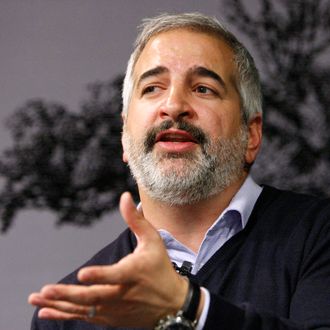
Here is an upsetting addendum to the story of Anthony Shadid, the Pulitzer Prize–winning Middle East reporter who died of an asthma attack while on assignment in Syria for the New York Times this winter: A relative of Shadid’s has said that, prior to entering Syria, the journalist told the Times that he was concerned about “logistical issues” related to the transfer, and that he was suffering from health problems when he moved.
>“The phone call the night before he left [Turkey for Syria], there was screaming and slamming on the phone in discussions with editors,” Ed Shadid, a cousin to the late reporter, said last night at the Arab-American Anti-Discrimination Committee’s convention in Washington, D.C.
“It was at this time that he called his wife and gave his last haunting directive that if anything happens to me I want the world to know the New York Times killed me,” Ed Shadid said.
The event’s organizers told Politico that the audience was “shocked” by the comments. Later, they cited them as evidence for a need to take “a closer look at the standards that are being used in sending journalists into war zones.” Meanwhile, the Times, which initially declined to comment, has responded with this statement:
Anthony’s death was a tragedy, and we appreciate the enduring grief that his family feels,” New York Times spokesperson Eileen Murphy told POLITICO. “With respect, we disagree with Ed Shadid’s version of the facts. The Times does not pressure reporters to go into combat zones. Anthony was an experienced, motivated correspondent. He decided whether, how and when to enter Syria, and was told by his editors, including on the day of the trip, that he should not make the trip if he felt it was not advisable for any reason.





























